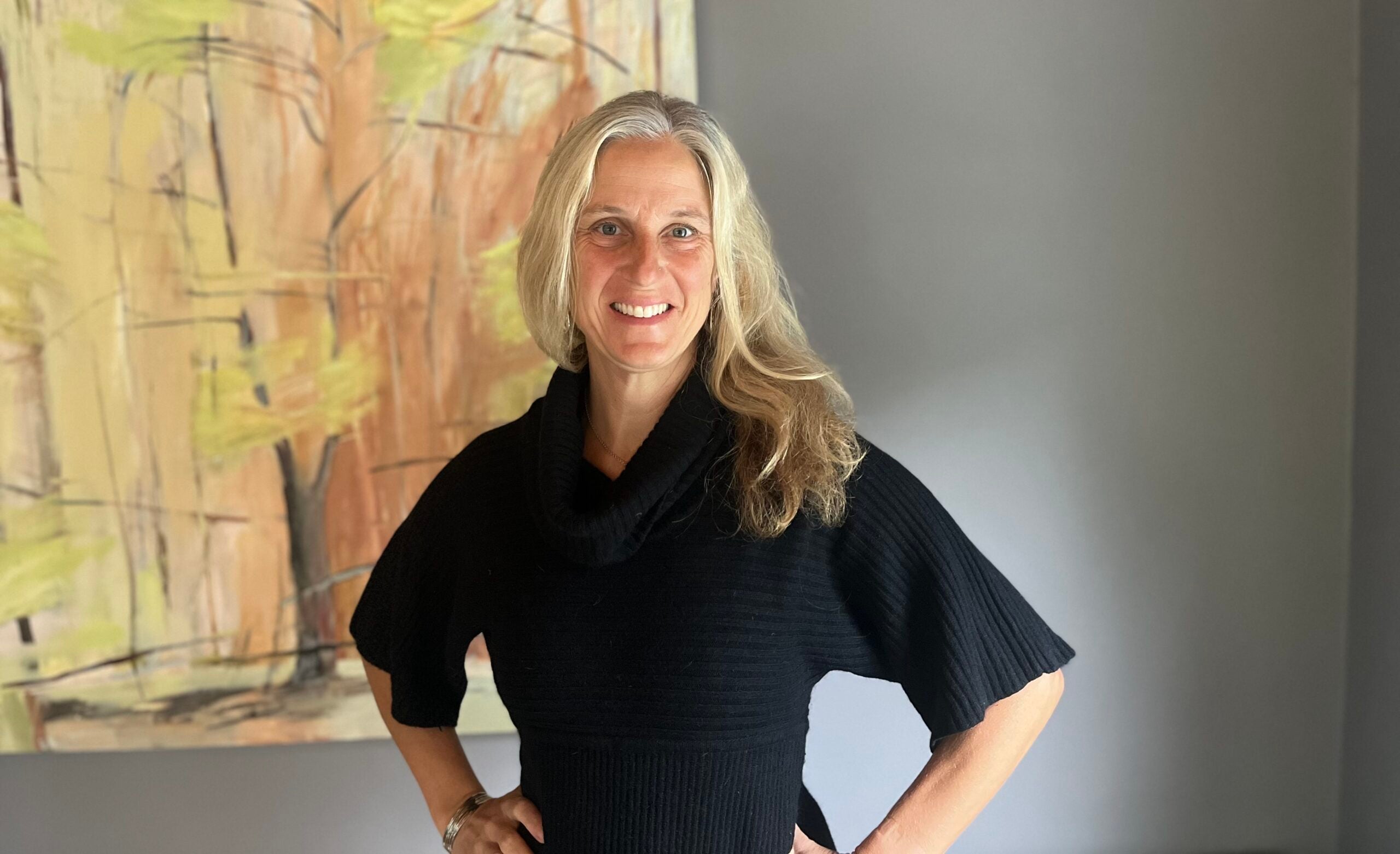URI Nursing Professor Erica Liebermann serves on international Lancet commission
Cancer is a leading cause of mortality in women and ranks among the top three causes of premature death in women under age 70 in almost every country. Yet women continue to face disparities in care that impede their ability to seek and obtain timely diagnoses and quality cancer care, according to analysis from The Lancet, among the world’s oldest and most prestigious medical journals.
University of Rhode Island College of Nursing Assistant Professor Erica Liebermann is playing a key role in addressing that disparity in care. She has been serving on a “Lancet Commission on Women, Power, and Cancer,” which calls for a feminist approach to cancer care, with sex and gender a part of all cancer-related policies and guidelines. The commission seeks to eliminate gender inequality; where health systems, cancer workforces and research ecosystems are more inclusive and responsive to the needs of women, reducing the global burden of cancer.
The commission brought together a multidisciplinary team from around the globe, including scholars with expertise in gender studies, human rights, cancer epidemiology, and more, along with patient advocates, who spent the last three years analyzing how women experience cancer. The commission has released the results of the study, with recommendations to policy makers, governments, and health and social care systems worldwide. The 21 commissioners recommend strategies to increase women’s awareness of cancer risk factors and symptoms, along with increasing equitable access to early detection and diagnosis of cancer.
“Women interact with the health system and experience cancer in a variety of ways,” Liebermann said. “We took an intersectional feminist approach to identify and challenge asymmetries of power that impact women’s experiences with cancer. We really tried to incorporate perspectives outside of the biomedical model, understanding societal forces, talking to patient advocates, and understanding what are some of the unmet needs of women. It’s not just about women’s cancers like breast and cervical cancer, but more about the broader inequities women experience within society, and within the healthcare system.”
Unequal power dynamics across society have resounding negative impacts on cancer prevention, care and treatment for women, the commission reports. Gender inequality and discrimination influence women’s rights and opportunities to avoid cancer risk factors, and impede their ability to obtain timely diagnoses and quality cancer care. Furthermore, gender inequalities have resulted in an unpaid caregiver workforce that is predominantly female, and hinder women’s professional advancement as leaders in cancer research, practice and policymaking, which perpetuates the lack of women-centered cancer prevention and care.
“Through training programs and leadership, it should be possible to create accessible and responsive health systems that provide respectful, quality cancer care for all women,” the commissioners write. “To ensure there is equal representation in the cancer workforce, there must be fair access to research resources, leadership and funding opportunities for women.”
To those ends, the commission made several recommendations to establish a feminist agenda to address cancer, including better recognizing the risk factors and causes of all cancers in women, not just “women’s cancers” that are often the primary focus. Governments need to identify unaddressed risk factors and develop laws that reduce known exposures to cancer risks for women and girls, including gender-specific risks from some commercial products.
Commissioners call for health systems worldwide to ensure data on sex and gender are routinely collected and publicly reported. Gender must be considered in all cancer-related policies and guidelines, making them responsive to the needs of all women, whether they be cancer patients, care providers, researchers or advocates, the report states.
The commission also recommends health systems and governments enforce fair, equitable and inclusive pay standards for all cancer caregivers; integrate gender competency into the education and training of the cancer workforce; prevent gender-based harassment and discrimination in the cancer workforce; and ensure equitable access to cancer research resources, leadership and funding.
The Lancet revealed the commission’s findings Sept. 27 at The Geneva Graduate Institute in Switzerland. Similar events around the world will increase the awareness of the report, and commissioners will take the recommendations back to their roles in academia, professional societies, health systems, governments and more, to open a wider conversation about gender inequities. They are working with the World Health Organization, health societies like the American Society of Clinical Oncologists and that group’s counterparts in other countries, governments, ministries of health, and patient advocacy organizations to share their findings and work to affect change.
“We have work to do locally and globally in terms of critically examining inequities in cancer health systems for women,” Liebermann said. “We also have an opportunity to disrupt and to create more gender-transformative systems for cancer research, control and care.”

